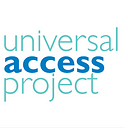“We are the people who run the economy”: Why empowering female workers in Kenya pays dividends

By Seema Jalan
Every day, Christine drops her children off at her employer-sponsored daycare and goes to her job as an employee relations assistant, popping over to check on her children during breaks.
Here at her workplace, the 36-year-old mother of two enjoys employee benefits that too many working women do not — access to essential health services like contraception, cervical cancer screening, counseling, and even clean, potable water to bring home to her family.
Christine works at Hela, a garment manufacturer in Kenya that produces apparel for major global brands, including Calvin Klein, Tommy Hilfiger, and Wrangler. Located about an hour from the capital of Nairobi, down a dusty road past the airport, Hela sits in what is known as the “Export Processing Zone,” along with a number of garment and manufacturing facilities Kenya is seeking to grow.
On the outside, many of the building look the same. But inside, Hela’s approach to the health and empowerment of its female workers sets the manufacturer miles apart.
Hela began operations in Kenya in 2016 with a workforce of 150; today, it employs 4,400 people — 75 percent of whom are women like Christine. Workers have access to free lunch, drinking water. including 20-liter containers to fill and take home, and an on-site health clinic staffed by a nurse midwife who provides basic first aid, check-ups for pregnant workers, and free condoms. A doctor also visits twice a week for more intensive services, and both health care workers refer employees to a nearby hospital when needed. In addition, Marie Stopes Kenya provides mobile services at Hela every three months, including cervical cancer screenings, family planning services, blood pressure screenings, HIV/AIDS testing and awareness, and nutrition education.

Offerings like Hela’s are part of a growing movement in the private sector to meet female workers’ health needs right where they are: in the workplace.
Take Christine, for example. She grew up in a town called Nyeri, in Kenya’s Central Province, as one of 10 siblings. Christine noted that her mother never used contraception because, at the time, she didn’t have access to any information about it. But Christine wanted to be able to control how many children she had, and better plan for her and her family’s future. She now uses a five-year contraceptive implant, which she received through Marie Stopes Kenya at her workplace.
“[It] has really helped me plan my family well. I can plan for the education, I can plan for the food, for clothing, for everything,” said Christine.
Access to contraception has also helped her in her career. “I can fully concentrate [at work] because I know I can take care of my kids without any problem or without any stress,” she says. “I can really concentrate on my job and also concentrate on how I can advance in life, education-wise, social-wise.”
As the mother of a three-year-old and eight-year-old, Christine benefits from another services at work, such as on-site daycare, where she can check on and even breastfeed her children during breaks.
“[The daycare] has very well-trained, qualified teachers who will take care of the kids very well,” said Christine. “My baby was being taken care of…I could go during the break and see my baby — well-fed, bathed, with the toys.”
Christine also received a cervical cancer screening at her workplace, again through Marie Stopes Kenya. This service was especially important to her after losing her sister to the disease in 2006.
“I did need to take care of my health and get tested because I know there is no cure for cancer,” Christine noted. “Here at Hela, women are the majority, and we are so vulnerable to so many diseases.”

Of course, these services come with a cost — but the returns are more than worth it, says Hela’s management.
“We want to retain people,” said Monica Kamu, a human relations official at Hela. “The gains are more than the costs.”
Christine echoes this belief, saying that if women like her have access to health and empowerment information and services, “they are going to work to the best of their abilities, because they will be assured of their health, and assured of their safety, and assured of their social status in society.”
Dominic McVey, a Group Board Director at Hela, explains Hela’s commitment to women workers, saying, “Hela understands that a successful workforce requires a healthy workforce. This is why we are expanding our investment in health and empowerment for our women workers. People are our business; without our people, we don’t have a business. Only when women workers have access to reproductive health care, education and training can they achieve their potential, and can we succeed as a business.”
This kind of “triple bottom line” approach to business — one in which social and environmental impact is prioritized alongside financial gain — doesn’t just stand to boost productivity and economies alike. The world needs forward-thinking companies to help achieve the Sustainable Development Goals, the ambitious international agenda unanimously adopted by UN member states to eliminate global plagues like poverty, hunger and inequality by 2030.
“There is a lot of potential within us,” Christine says of her female colleagues at Hela and women workers around the world. “We are the people who run the economy. There is nothing a woman can’t do now.”
As for her own future? Christine knows exactly where she wants to go. She wants to be an HR manager and help other employees realize their potential in the workplace:
“The sky is the limit for me.”
Learn more about the Universal Access Project and get involved at www.universalaccessproject.org.
